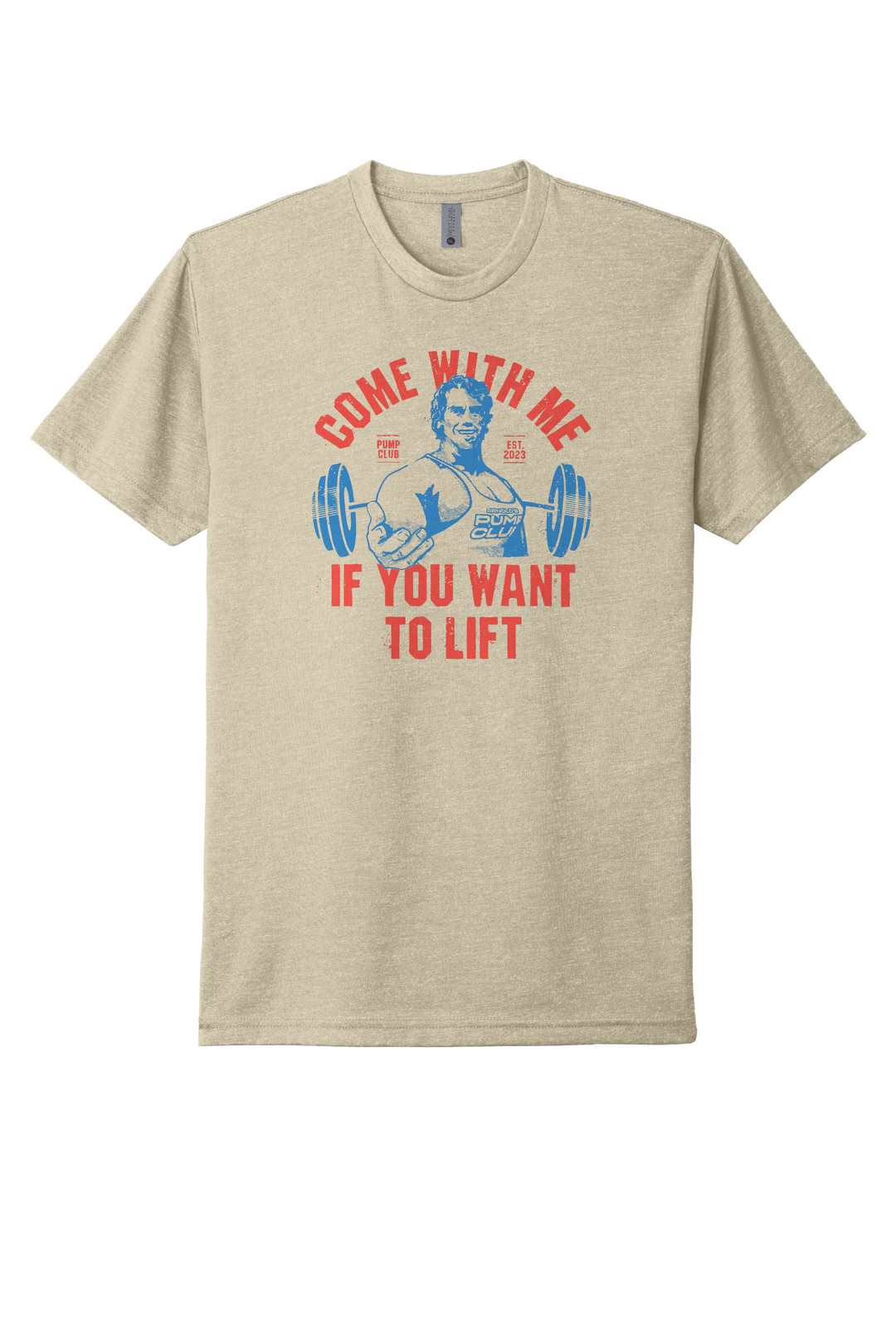Together With Momentous
Twenty years ago, as a young journalist, I watched a football coach pour a tub of creatine into a trash can.
“No one touches this stuff,” he barked to his team. “Unless you want to go bald by 25 and kill your kidneys.”
The tub was barely used. It hadn’t been banned. But it had been blacklisted by fear, hearsay, and locker room legends that sounded a lot like steroid horror stories.
Today, that same supplement is found in the lockers of Olympians, elite soldiers, and world-class researchers. It’s in university neuroscience labs and cancer prevention trials. It’s in the sleep-deprived tech worker’s cabinet and the postpartum mother’s gym bag.
And yet, despite all the evidence—and it is overwhelming—most people still misunderstand what creatine is, how it works, and how to use it properly.
So let’s do what we do best in this community: Cut through the BS and get to the truth.
Because when it comes to creatine, most of the hype is real. But, unfortunately, so are the lies.
What You’ll Learn Today
The “Natural” Creatine Reality: how your body makes it (and where to get in your diet)
The 5 proven benefits of creatine
Additional potential: sleep solutions and cancer prevention
Three big creatine myths
The type of creatine that might have no creatine
The best creatine for your body
Creatine Is Not What You Might Think
Back in 1998, when Mark McGwire was bashing baseballs with Sammy Sosa, McGwire would reference his use of creatine as part of his performance-enhancing regimen.
As we now know, it was steroids — not creatine — that really powered his performance. Little did we know then that creatine and steroids would be linked for decades. But they couldn’t be more different.
Creatine isn’t a steroid. It’s a molecule your body makes every day. Creatine is an amino acid derivative and is produced in your body from the amino acids arginine, glycine, and methionine.
That’s the first thing you need to understand.
Creatine is not some synthetic, muscle-morphing powder. It’s a naturally occurring compound found in meat and fish, and produced in your own liver, pancreas, and kidneys. You use it constantly to power your brain, fuel your muscles, and recover from stress.
About 95% of the creatine in your body is stored in your muscles. The other 5% helps your brain function, your cells produce energy, and your mitochondria stay healthy.
Supplementing with creatine doesn’t override your body. It amplifies it. It helps you build a reserve tank of energy—so you can train harder, recover faster, think more clearly, and possibly protect against diseases we once thought were inevitable.
And for most people, it’s impossible to get optimal amounts from diet alone. Unless you’re eating 2 to 3 pounds of red meat every day, supplementation is the most efficient, effective way to increase your stores.
The Benefits Of Creatine
The supplement industry is filled with more fiction than fact (more on that in a moment). And that’s why creatine stands out.
Because creatine is backed by hundreds of studies that suggest it does more than almost any supplement on the market.
And while it's earned its reputation in gyms, the most exciting research is happening far beyond the weight room. If you decide to supplement, here’s what you can expect:
Cognitive Function and Brain Health
Creatine increases levels of phosphocreatine in the brain—the same energy source that fuels your muscles. This has been shown to improve short-term memory, processing speed, and overall cognitive performance, especially in sleep-deprived individuals and older adults. In one trial, sleep-deprived participants given creatine maintained their focus and mental sharpness while the placebo group’s performance plummeted. Other studies have found improvements in mental fatigue, executive function, and even emotional resilience.
Strength, Power, and Muscle Growth
This is where creatine made its name—and where the evidence is most conclusive. Hundreds of trials have confirmed that creatine enhances performance in short, high-intensity efforts, such as sprinting, jumping, and weightlifting. It helps regenerate ATP (your body’s primary energy currency), so you can squeeze out more reps, more volume, and more power, leading to greater strength and lean muscle gains over time.
But we’re not talking steroid-like gains. You might add a few pounds of real muscle (not water weight, more on that in a moment). It’s not insignificant, but no matter how much creatine you toss into your shakes, it won’t turn you into a bodybuilder; not even close.
Healthy Aging and Physical Function
Sarcopenia—the gradual loss of muscle mass and strength with age—is one of the most overlooked drivers of poor health and mortality. Creatine has been shown to help preserve lean mass, improve functional capacity, and support better mobility in older adults. It may also help improve bone density and muscular endurance in individuals with conditions such as osteoarthritis and fibromyalgia.
Cardiometabolic Health
Research suggests that creatine supplementation can improve several risk factors tied to chronic disease. These include improved glycemic control, reductions in LDL cholesterol and triglycerides, lower homocysteine levels (a marker associated with cardiovascular risk), and even a decrease in liver fat accumulation. In a recent pilot study, older adults who supplemented with creatine for just four weeks saw significant improvements in blood vessel function, potentially reducing their risk of heart disease.
Therapeutic and Clinical Promise
Creatine’s role in cellular energy and recovery has led researchers to explore its impact on a variety of medical conditions. It’s currently being studied for its potential to slow the progression of neuromuscular disorders, such as ALS and muscular dystrophy, support muscle mass and strength during chemotherapy, enhance recovery and reduce fatigue in people with multiple sclerosis, and potentially improve the response to certain antidepressants by restoring energy metabolism in brain tissue.
And those are just the more established areas of research. New studies also suggest…
The Potential Benefits Of Creatine
When Sleep Fails, Creatine Might Save You
You know that feeling: the alarm goes off, your eyes sting, and your brain feels like it’s been replaced with a bowl of oatmeal. Normally, you reach for coffee. Maybe twice.
But what if there were a different way to reboot your brain—one that doesn’t leave you jittery, anxious, or needing another fix by 10 a.m.?
That’s exactly what researchers set out to explore in a bold study on sleep deprivation and mental performance.
They took participants and kept them awake for 21 hours across two nights. Then, they asked them to perform a series of demanding cognitive tasks.
The results were predictable for the placebo group: focus tanked. Mental speed slowed to a crawl. Fatigue won.
But for the group given a single, high dose of creatine? Their brains held the line. They processed faster, performed better, and resisted the cognitive collapse you’d expect after two nights of poor sleep.
It was almost as if the creatine gave their brains a backup generator, keeping the lights on when everything else was shutting down.
Here’s what made the study so surprising: Most research on creatine and brain health shows benefits after several weeks of daily use. But this study saw results after just one dose.
Why? Because creatine helps replenish phosphocreatine, the brain’s rapid-response energy reserve. When sleep is missing and energy is low, creatine acts like an emergency fuel line, keeping your mental engine running.
Could Creatine Be a Silent Defender Against Cancer?
A recent study analyzed over a decade of U.S. health data—tracking more than 25,000 adults—and found something researchers didn’t expect: Higher dietary creatine intake was associated with a significantly lower risk of cancer.
And the effect wasn’t subtle. Men who consumed just 0.09 grams more creatine per day—about the amount found in a small serving of meat—saw their cancer risk drop by 7 percent. For older adults in their 70s and 80s, that risk reduction jumped to 14 percent.
The researchers believe this protective effect may come from how creatine supports your cells:
It improves mitochondrial function, helping your cells produce clean, stable energy.
It reduces oxidative stress, protecting against DNA damage that can lead to mutations.
It may enhance immune system surveillance, making it harder for abnormal cells to grow unchecked.
In essence, creatine isn’t just a performance enhancer—it’s a metabolic stabilizer. And in a body under stress, that stability may mean the difference between healthy cell repair and dangerous cell transformation.
In short: creatine is for anyone who wants to move better, think faster, age stronger, and protect their health. That’s the science.
But where there is promise, there is predatory marketing.
Because some people — who don’t understand creatine — will make you fear it for no reason. And others who do understand creatine will try to get you to spend ungodly amounts on an inferior product.
3 Common Creatine Myths
Before you get sucked into something you don’t need, here are other claims that are far from the truth.
Does Creatine Make You Bloated?
Creatine does pull water into your muscles. However, that’s the point.
Creatine does not pull water under your skin or into your belly, which is what people think about with bloating. Instead, creatine helps pull water inside your muscle cells, where it supports strength, hydration, and cell function.
If you see the scale tick up a pound or two when starting creatine, that’s a good sign. Your muscles are fuller. Your recovery is stronger. You didn’t gain fat. You gained function.
In fact, a meta-analysis of 12 clinical trials found that creatine helped people gain muscle and reduce body fat. One group even lost an extra pound of fat compared to those not using it, all while adding lean mass.
That’s not bloat. That’s progress.
But here’s why it matters: Walk into a supplement store today and you’ll find creatine in 50 different forms: HCL, nitrate, magnesium chelate, ethyl ester, buffered, micronized, gummy, gummy with glitter, creatine in a pink can.
It’s easy to get sold hook, line, and sinker on the “next best thing.” And if creatine has a breakthrough, we’ll be the first to let you know.
But here’s the reality: approximately 88 percent of creatine supplements use unproven or under-researched forms.
And most of them charge you more for something that is less.
Creatine monohydrate remains the gold standard. It’s been studied in thousands of trials. It’s safe, effective, and the most absorbed form we know of.
Other forms might dissolve faster in water (like Creatine HCL), but solubility doesn’t equal absorption. And without long-term safety data, you’re gambling on marketing instead of science.
If you want creatine that works, trust monohydrate.
If you want creatine that’s safe, look for third-party certification, like NSF Certified for Sport or Informed Sport.
Do Women Need Special Creatine Products?
It’s not just that supplement companies will suggest you need an evolved type of creatine. They’ll suggest that your gender influences the type of creatine that’s best for your body.
You can’t go on a social media site without creative ads highlighting a jar of creatine with a soft pink label, a flowery scent, maybe even some collagen or “hormone support” mixed in.
Here’s the truth: Women don’t need a special creatine. They just need creatine.
Specifically, creatine monohydrate—the same form studied in the endless trials across men and women alike. It’s the most researched, safest, and most effective version available.
Research indicates that creatine monohydrate benefits women just as much as it does men. In fact, if creatine were discovered today, it might be marketed first to women.
Why?
Because women store 70 to 80 percent less creatine than men. And studies suggest women benefit just as much—if not more—from supplementation.
Creatine can support hormone health. It may improve sleep quality, especially during the menstrual cycle. It boosts recovery from resistance training. And it helps protect bone, brain, and muscle—all systems that are especially vulnerable during menopause or postpartum.
And yet, instead of empowering women with this science, the industry has done the opposite. It created pink tubs labeled as “female creatine,” added fillers and coloring, and charged more for the same ingredient.
Don’t fall for it. It’s not worth it. And the product might be different, but it is certainly not better.
Will Creatine Make You Lose Your Hair?
While women are being sold empty promises, millions of men stayed away from creatine: a single study from 2009 suggested a spike in DHT (a hormone associated with hair loss) after creatine use.
That study didn’t actually measure hair loss. It had a small sample size. It’s never been replicated.
But for years, it created panic. Finally, researchers decided to put the myth to the test.
In a new, randomized, double-blind study, scientists administered either creatine or a placebo to healthy men for several weeks. They tracked hormone levels and performed detailed imaging tests to measure hair density, follicle count, and thickness.
The result? No difference. In DHT. In hair health. In anything. Creatine didn’t cause hair loss. It didn’t raise DHT. It didn’t touch testosterone.
This was the first study to assess creatine’s effects on hair directly, and it made the answer crystal clear: The fear is unfounded.
The Hot New Creatine (That Often Has No Creatine)
In theory, gummies sound great.
They’re easy to take, taste like candy, and feel more fun than scooping powder into a shaker. But when it comes to creatine gummies, a sweet coating can hide a bitter truth:
Unfortunately, many of the popular creatine gummies don’t actually contain any creatine.
Independent lab tests conducted earlier this year looked at six of the most popular creatine gummies sold online, including several labeled as “Amazon’s Choice.”
Here’s what they found:
Two products had zero measurable creatine.
Two more had less than 1 gram per serving—far below the 3 to 5 grams recommended for effectiveness.
One brand, which claimed 5 grams of creatine in two gummies, contained just 0.005 grams. That’s 1/200th of the promised dose. You’d have to eat the whole bottle just to get a single gram.
And yet these products still sold tens of thousands of units per month—thanks to clever packaging, inflated reviews, and a marketplace that doesn’t require independent verification of label claims.
To be clear, not all gummies are scams. Some brands did have a dose close to their stated doses. But they’re the exception, not the norm.
And it was no coincidence that the good gummies were the ones with third-party certification.
Without it, you’re trusting that a supplement company isn’t cutting corners, skimping on dosage, or swapping out active ingredients for sugar and filler.
At best, you’re wasting money. At worst, you’re trusting your health to a gummy that’s faking the one thing it’s supposed to deliver.
The Creatine We Trust
If you want the full benefits of creatine—without the risk of contaminants, underdosing, or shady ingredients—you need to know what’s in your product.
They use Creapure®, the cleanest, most tested form of creatine monohydrate on the planet. It’s 99.9 percent pure. No fillers. No heavy metals. No banned substances.
It’s the same creatine used by professional athletes, elite military units, and leading researchers.
Now it comes in a naturally flavored Lemon Travel Pack you can throw in your bag and take anywhere.
Every batch is tested. Every label is accurate. Every scoop delivers what your body needs—and nothing it doesn’t.
That’s the Momentous standard.
If you’re going to use one supplement every day to improve your strength, brain, recovery, and long-term health, creatine checks the boxes for safety and effectiveness. The research suggests anywhere from 5 to 10 grams can deliver the benefits you desire.
As an APC reader, you can save up to 35 percent OFF a Momentous subscription by using the code PUMPCLUB.
Creatine isn’t a secret weapon anymore. It’s a foundational tool backed by science, trusted by experts, and now finally understood. But don’t buy into the new myths that can hold you back.
The Creatine Cheat Sheet
If you’re training for strength or performance, take 3 to 5 grams per day.
If you want cognitive support, 5 to 10 grams may be more beneficial.
Creatine is safe for long-term use in healthy individuals.
It does not cause kidney damage, hair loss, dehydration, or fat gain.
Monohydrate is the only form with decades of peer-reviewed research.
Third-party certification is non-negotiable. If it’s not tested, don’t trust it.
The APC Assessment: Do you need to take creatine? Not at all. We would argue there’s no such thing as a “necessary” supplement. Every supplement should complement your daily healthy habits and routines.
At the same time, creatine is a rarity in all the good ways. In a wellness world of filled with hype and empty promises, creatine is part of a very short list of supplements that provide clear benefits, minimal risk, lots of upside, and plenty of evidence — all at an affordable cost. And that’s why we believe it’s a great addition for most.
We hope you enjoyed the special report. If there are more topics you want us to cover in depth, reply to this email and let us know. Enjoy the rest of your weekend, and we’ll be back on Monday.
—
Publisher: Arnold Schwarzenegger
Editors-in-chief: Adam Bornstein and Daniel Ketchell























































